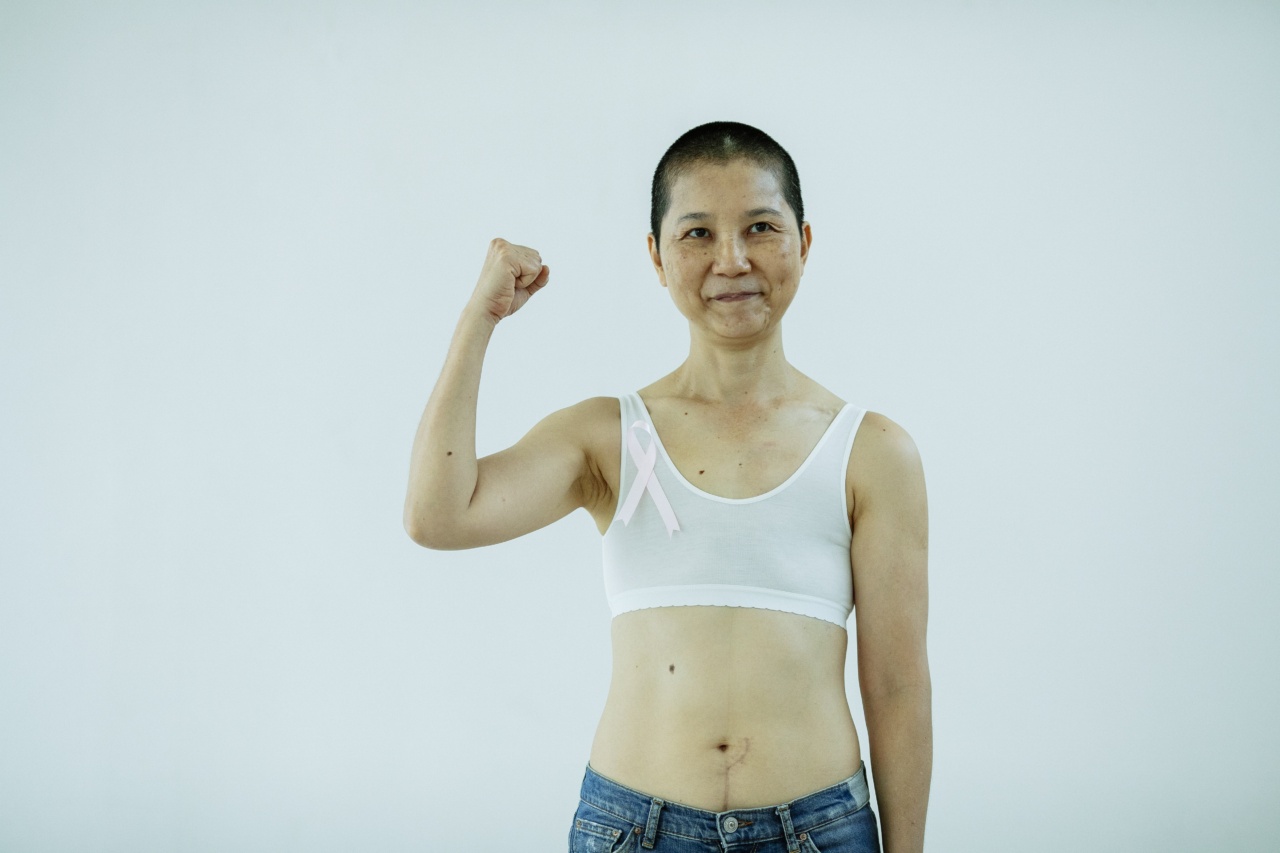Breast cancer is the most common type of cancer detected in women worldwide, with an estimated 2.3 million women diagnosed each year.
Luckily, advancements in drug research and development have led to significant breakthroughs in the treatment of breast cancer. These treatments not only target cancer cells but also have the potential to reverse the disease entirely in some patients. Let’s explore the power of pharmaceuticals in reversing breast cancer.
Targeted Therapy
Targeted therapy drugs work by identifying specific molecules on cancer cells that allow them to grow and survive. They then prevent these cells from using these molecules, effectively killing or inhibiting their growth.
One of the most commonly used drugs for targeted therapy in the treatment of breast cancer is Trastuzumab.
Trastuzumab targets the HER2 protein that is present in up to 25% of breast cancers and can lead to more aggressive tumors. The drug can significantly reduce the risk of cancer recurrence in patients with early-stage HER2-positive breast cancer.
It can also slow the progression of advanced-stage HER2-positive breast cancer, leading to longer survival times for patients.
Hormone Therapy
Another type of targeted therapy that has been successful in reversing breast cancer is hormone therapy. This treatment is primarily used for breast cancers that are estrogen receptor-positive (ER+).
Hormone therapy drugs work by blocking the effects of estrogen in the body, effectively starving estrogen-sensitive cancer cells of the hormone they need to grow and divide.
One of the most widely used hormone therapy drugs is Tamoxifen, which works by binding to estrogen receptors in cancer cells and preventing them from receiving estrogen.
Tamoxifen has been shown to reduce the risk of cancer recurrence by up to 50% in women with early-stage ER+ breast cancer. It has also been effective in treating advanced-stage breast cancer by blocking the growth and spread of cancer cells.
Chemotherapy
Chemotherapy is a type of systemic therapy that uses drugs to kill cancer cells throughout the body. These drugs can be administered orally or intravenously and can be used to treat different types and stages of breast cancer.
Chemotherapy is often used in conjunction with surgery and radiation therapy to improve the chances of a full recovery.
The drugs used in chemotherapy work by targeting rapidly-dividing cells, including both cancer cells and healthy cells. This can often lead to side effects such as hair loss, nausea, and fatigue.
However, chemotherapy has been effective in reversing breast cancer in many patients. It can not only kill cancer cells but also make them more susceptible to other treatments such as targeted therapy and hormone therapy.
Immunotherapy
Immunotherapy is an emerging area of cancer treatment that focuses on using the body’s immune system to fight cancer. This type of therapy works by boosting the immune system, which can then recognize and attack cancer cells.
While much of the research on immunotherapy is still in the early stages, there have been some promising results in the treatment of breast cancer.
One type of immunotherapy that has shown promise in breast cancer is checkpoint inhibitor therapy. This treatment works by blocking molecules that can inhibit the immune system’s response to cancer cells.
By blocking these molecules, checkpoint inhibitor therapy can allow the immune system to better recognize and attack cancer cells.
Breast Cancer Vaccines
Breast cancer vaccines are another emerging area of cancer research. These vaccines work by training the immune system to recognize and attack cancer cells specifically.
While there are currently no breast cancer vaccines approved for use, early-stage clinical trials have shown promising results.
The most advanced breast cancer vaccine in development is known as the HER2 peptide vaccine. This vaccine is designed to target the HER2 protein, which is present in up to 25% of breast cancers.
Early-stage clinical trials have shown that the vaccine can stimulate an immune response against HER2-positive cancer cells and may be effective in preventing cancer recurrence.
Conclusion
The advancements in drug research and development have led to significant breakthroughs in the treatment of breast cancer.
Targeted therapy, hormone therapy, chemotherapy, immunotherapy and breast cancer vaccines all have the potential to reverse breast cancer entirely in some patients. While there is still much to learn and explore, these advancements give hope to many women diagnosed with breast cancer.
























